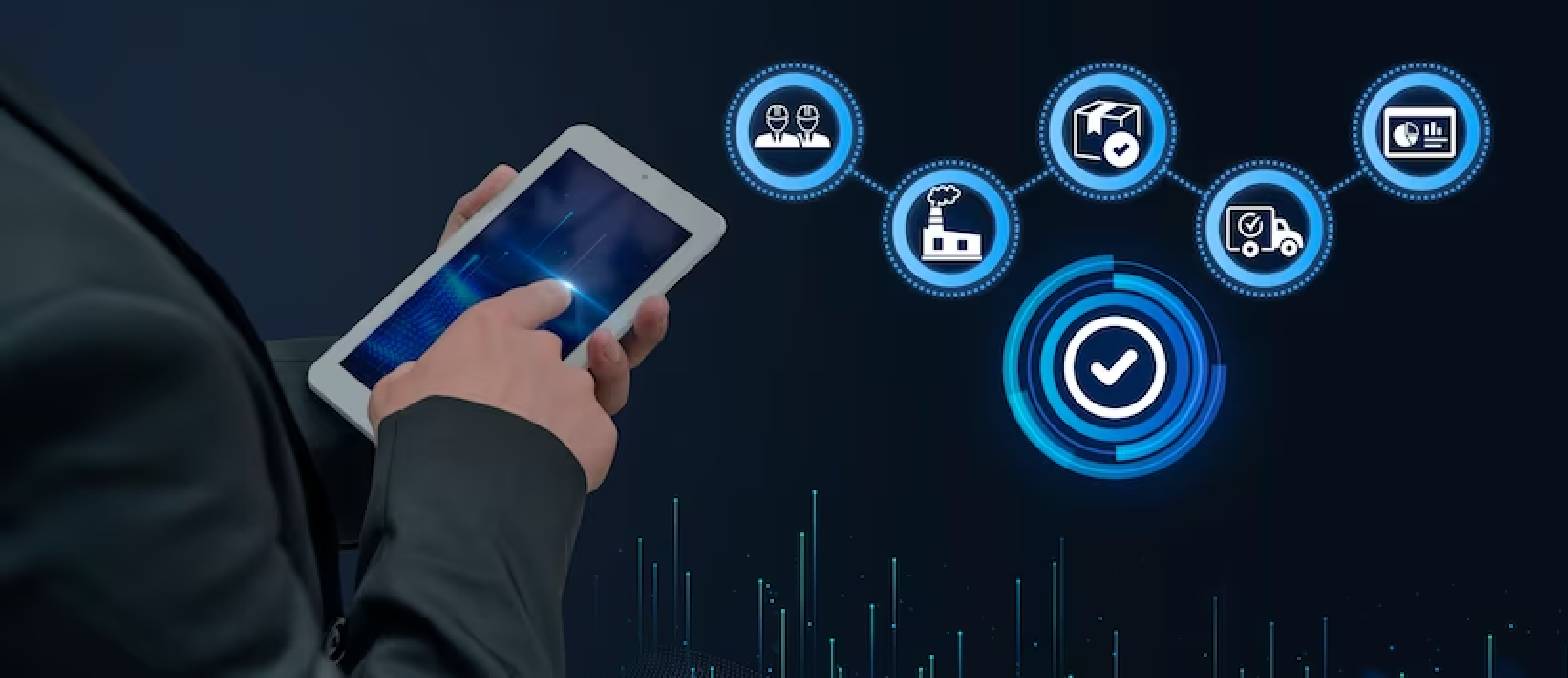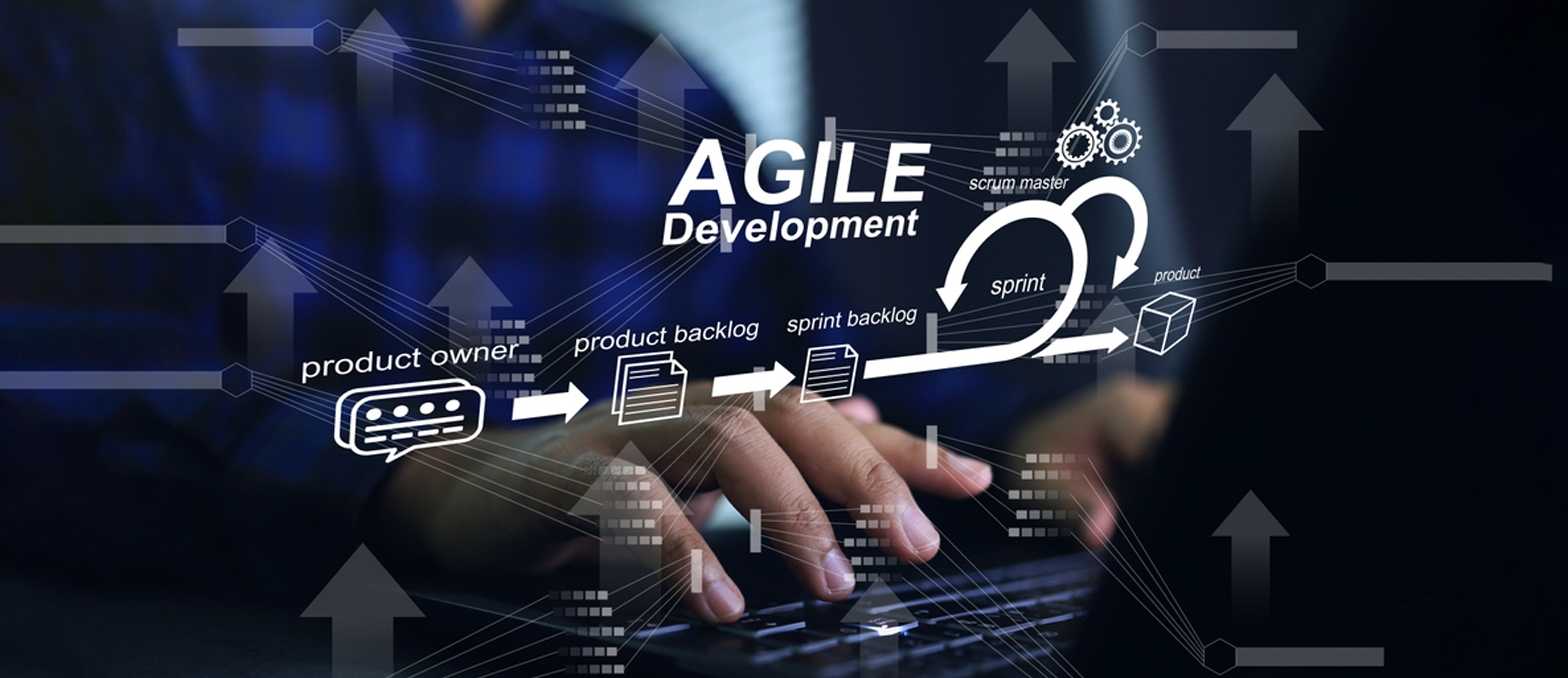Table of Contents
As an efficient hybrid mobile development company, we understand the growing importance of mobile applications in today’s connected world. Mobile apps have become an essential part of our daily lives and businesses are leveraging them to deliver innovative solutions and excellent customer experience. In the competitive business landscape, launching successful apps has become crucial for growth. However, building an app from scratch requires significant investment of time and resources. That’s where clone app development comes into play. By replicating popular existing apps, clone app development provides a faster and cost-effective way for businesses to launch their mobile presence.
Clone App Development: All You Must Know About It
Clone app development refers to the process of developing an application by replicating the core functionality and design of an already existing successful app. The key aspects about clone app development are:
- It allows businesses to leverage the proven success of trending apps in USA by replicating their functionalities with minor customizations as per the target market and business needs. This significantly reduces the development time and costs compared to building an entirely new app from scratch.
- Clone apps are developed by studying and analyzing the UI/UX, technical architecture, codebase and overall structure of the original app. Developers of the clone app development company then rebuild the core functionalities to provide a similar user experience.
- Popular apps that are often cloned include social media, transportation, food ordering, gaming, entertainment, productivity etc. For example, cloning Uber, Facebook, Instagram, Snapchat, TikTok, Spotify etc.
- Original mobile apps are analyzed using reverse engineering techniques like decompiling, disassembling and debugging the app’s code to understand its architecture and design. Details like database schema, APIs, libraries used etc are studied.
- The clone may have some customizations or additional features tailored for a particular target audience or geographical market. For example, additional payment or localization options.
- Developing clone apps is a legal grey area. It is important for clone app developers and companies to ensure no direct copyright infringement and intellectual property theft occur during the app development lifecycle. Only public APIs or reverse engineered code can be utilized.
- As of 2022, the global mobile app cloning market size is worth over $6 billion and is projected to grow at 15-20% annually according to prominent market research reports. This huge potential has led to proliferation of many clone app development companies.
Benefits Of Clone App Development
There are immense benefits for businesses to leverage clone app development which is driving its popularity. Some of the key advantages include:
Faster Time to Market: Clone app development allows launching a minimum viable product within 3-6 months compared to 12-18 months for building an app from scratch. This accelerates market entry.
Low Development Costs: On average, Cost of Developing Mobile apps in clone version are 30-50% lower than custom app development. Savings are in the range of $50,000 to $150,000 depending on app complexity.
Minimal Risks: By cloning proven concepts, there is far lesser risk of market failure compared to an entirely new app idea. Helps avoid costly pitfalls of experimenting with untested concepts.
Leveraging Popularity: Businesses can leverage the widespread popularity, brand recall and user base of original hit apps. This assists in faster scaling through viral growth.
Proven User Experience: Users are already familiar with the interaction models and flows since it clones the design of well-known apps they use regularly. Reduces learning curve and boosts adoption.
Advanced Testing: Issues faced during development and post-launch can be more efficiently addressed as the core architecture is tried-and-tested in original versions. This helps refine the product faster.
Easy Localization: Clone apps can be customized or localized for local needs, languages, payment methods, cultural preferences etc. More regions can be tapped into.
Scope for Differentiation: While retaining the essence, visual identity and flows can be modified. Additional exclusives can be layered on to develop a unique brand positioning and value proposition over time.
Analytical Insights: By analyzing metrics of popular original apps, deeper understanding is attained around what users really need and want. This supports better product-market fit.
10 Powerful Clone App Development Ideas To Consider
Here are 10 lucrative clone app ideas that businesses can leverage through expert clone app development services of a company like ours:
1. Food Delivery App Clones
On demand food delivery vertical is booming. Businesses can consider cloning top food delivery apps like DoorDash, UberEats,swiggy to let local restaurants accept delivery orders. On demand grocery delivery app development can also be explored.
2. Transportation App Clones
Transportation sector is ripe for disruption through clones of global leaders like Uber, Lyft, Ola offering ride-hailing solutions tailored to local needs and fleet operations. Cloning larger cab services is another opportunity.
3. Social Media App Clones
Dominant social platforms like Facebook, Instagram, Snapchat, TikTok have transformed how we connect and spend time online. Businesses can deliver variations optimized for specific demography, interests, languages through clones.
4. E-commerce App Clones
Entrepreneurs can consider cloning the shopping experience of major e-commerce platforms like SHEIN, Amazon, Flipkart, Etsy through app-first models catering to local products and payment options. Cross-border opportunities exist too.
5. Fitness & Wellness App Clones
Health is a growing sector. Cloning workout, yoga, meditation apps like Calm, Nike Training Club, AloMoves and pairing them with IoT/AR is a huge untapped market for startups in the preventive healthcare space.
6. Streaming App Clones
Entertainment is online. Developing regional variants of global streaming giants Netflix, Spotify, Shazam and Podcast Apps like Pandora tailored for local content in partnership with producers can be a winning formula.
7. Gaming App Clones
Mobile game app development is experiencing an unprecedented boom. Cloning massively popular games like Candy Crush, Temple Run, Angry Birds, PubG and offering localizations, social tournaments, competitions is a very lucrative market.
8. Dating App Clones
Dating is moving to mobiles. Clone apps like Hinge & others that offer a safer, customized matchmaking experience for local communities based on interests, priorities while complying with cultural sensitivities have great potential.
9. On-demand Services App Clones
Apps that connect users to on-demand services like plumbing, laundry, beautician, tutorials through vetted local providers are in huge demand. Doctor On Demand app development clones can be highly impactful as well.
10. Educational App Clones
Schools, colleges, and edtech companies can develop visually impressive, engaging mobile learning experiences for K-12, test prep, vocational courses, language learning by cloning top global edtech pioneers.
Don’t Wait—Boost your Business with our Powerful Clone App Ideas!
Examples Of The Apps That You Can Follow for Clone
Below are the names that you can consider and move ahead as per your industry needs.
- Binance Clone App Development: A cryptocurrency exchange clone like Binance for trading cryptos with advanced features like margin trading, staking etc.
- Uber Clone App Development: On-demand multi-service transportation clone like Uber for taxi, auto-rickshaw, delivery booking with real-time tracking and payments.
- Gojek Clone App Development: Multi-service on-demand platform clone like Gojek for food, grocery, logistics delivery booking with payment wallet.
- Amazon Clone App Development: E-commerce marketplace clone like Amazon for online shopping, products listings, seller marketplace with order management.
- Grubhub Clone App Development: Food delivery clone like Grubhub for restaurants to accept online orders directly and customers to browse menus/dishes.
- Tiktok Clone App Development: Video sharing social media app clone like Tiktok for creating, editing and sharing short entertainment video clips.
- Tinder Clone App Development: Dating app clone like Tinder for browsing profiles, connecting and chatting with matches based on swipes.
- Zomato Clone App Development: Restaurant discovery and food delivery app development clone like Zomato listing menus online, reviews and home delivery of dishes.
- Etsy Clone App Development: Handcrafted goods e-commerce clone like Etsy for sellers to create shops and customers to browse unique products.
- Netflix Clone App Development: Video streaming platform clone like Netflix for watching movies and shows with personalized recommendations.
Steps To Consider For Clone App Development
Building a successful clone app involves careful planning and execution. Here are the steps an app development company in USA can follow for optimal results:
Market Research
The initial crucial step for any app development company in USA embarking upon clone app development is extensive market research. This involves identifying an existing app concept that has proven success and demand. To do so, a Successful Mobile App Development company carefully analyzes the top performing apps across various categories on app stores. Parameters like the number of downloads, ratings, engagement metrics help gauge popularity. Simultaneously competitor apps in similar domains are also studied. Afer the selection of an ideal candidate, it goes into analysis by the clone app developer. The evaluation of its core value propositions, USP, key activities and target segments makes it immensely popular. Key aspects looked into include mission, vision, monetization strategy followed. This research extends to examining user reviews and complaints to identify scope for improvements. Simultaneously, identification and analysis of the opportunities for the target segment is then done. Such meticulous research by mobile application consulting services forms the blueprint for the entire clone app development journey.
Competitive Analysis
After finalizing the app to be cloned, the clone app development company conducts in-depth competitive analysis. The experts then prepare studies of existing similar clone apps or apps delivering comparable functionality . Evaluation of their features, design, technical architecture, revenue models and strategies are done through first-hand usage as well as study of open sources like blogs, reviews. This helps identify differentiators, gaps, pitfalls to avoid and scope for extending the possible USP. Key aspects analyzed include UI/UX trends, technologies used, target segments, customer pain-points addressed, monetization approaches and partnerships leveraged. Benchmarking against industry leaders to foresee future trends. After this the experts identify opportunities to integrate valuable additions wherever feasible within given constraints. Regular scanning responds promptly ahead of competition. Such extensive analysis by an on demand app development company helps design a robust product with ample scope for uniqueness and sustained long term growth.
Feature Planning
Based on insights from market research and competition scan, the clone app development company draws up a comprehensive feature planning document. For MVP, essential features deliver core value by the original app along with any target-specific additions. Features are classified based on priority, dependencies and development complexity. User journeys allow to understand interlinking of features across onboarding and various use cases. Keeping functionality parity, UX polish, cross-platform compatibility in view, specifications for each feature provide its scope, inputs/outputs and integrations. Database structures optimize data usage and then resource and security requirements estimation is in line. Simultaneously a roadmap is there listing additional features for periodically addressing use cases, pain-points or opportunities. It includes features based on initial user feedback and engagement. Responsibilities and timelines seamlessly execute the multi-phase product development by an app development company in USA.
Wireframing
With comprehensive feature specifications and user journey maps in place, expert UI/UX designers from a clone app development company get involved. Initially we create concept sketches reflecting the essence of the original app along with innovations. Key screens are flows are there on paper and then we use advanced tools like Figma, Adobe XD as professioanl clone app developer to flesh out digital wireframes. All features across user onboarding and various use cases are then in migration into minimal yet informative page templates clearly depicting content, elements and their prioritization. Calls to action covers color schemes, typography and icons matching brand guidelines. Proper labeling and input fields are also then in contention and then feedback loops, error messages etc are also in consideration. Linking of screens through clickable hotspots and edge cases testing and improvements is also into incorporation. This helps the mobile app development companies in USA visualize and validate the conceptualized design with stakeholders before development commences.

Technology Selection
With critical insights into target users, planned features, timelines and budget in place, the clone app developer selects the most optimal technology stack in consultation with technical experts. Parameters evaluated are – existing skilled resources, long term costs, capabilities, compatibility with planned features etc. Popular options being Node.js, PHP, Python, AWS etc. Other crucial choices are UI framework, push notification service, payment integrations etc. This helps the clone app development company to plan development, release robust prototypes within stipulated budgets and timelines leveraging expertise of cross-platform app development services.
Prototyping
With technologies and key features finalized, the clone app developer builds high fidelity clickable prototypes. Modern prototyping tools like FIGMA, Adobe XD, InVision etc translate wireframes into interactive demos replicating planned functionality and flows. Placeholder assets and all features perform actions on clicks, swipes etc. Prototypes then work as responsive for various screen sizes. Debugging ensures glitch-free performance. Usability testing by the developer with target users then assists to gauge clarity of on-boarding and learnability across various user profiles and devices. Feedback through questions, ratings and note-taking. After this the developer resolves issues by modifying interactions and visuals. Such prototypes help validate pre-development assumptions, gain early feedback and refine specs seamlessly before actual development starts.
Development
Post prototype validation, the clone app developer initiates development as per finalized specs, designs and timelines. A standard Agile methodology is the next step where cross-functional teams work on it. Modular coding begins on mobile platforms specified earlier leveraging their respective best practices and patterns. Backend Mobile App Development Frameworks are coded first to establish core app functions and API integrations. We then developed Database schemas with UI components using frameworks that were in planning and contention.. Authentication, push, payment integrations then in context. After this developers work on Features incrementally in sprints. After this we test the same individually and integrate it. Once development is complete, final testing by the app development company in the USA ensures everything works flawlessly.
Testing
Even before development wraps up, the clone app developer devises a comprehensive testing strategy involving skilled testing professionals. Different testing types are planned – unit testing, API testing, UI/usability testing, Increase App Performance, localization testing etc. Test scenarios covering edge cases is then in use and after this, automation frameworks are set up. This is for regression and after this third-party tools is also in use wherever necessary. As development nears completion, testing begins in parallel on emulators and devices across platforms and OS versions. After development, the clone app development company ensures no bugs remain by conducting exhaustive testing, fixing issues and re-testing.
Marketing
Even before the launch, the clone app developer chalks out a comprehensive multi-channel marketing strategy in sync with the original app. Key specific aspects include – Promoting the announcement and build-up through social pages of target communities to introduce the app. Creating promotional collateral and creatives highlighting app value props. Publishing tips and tutorials to introduce the app concept and educate users. Reaching out to relevant journalists, influencers for coverage. Running targeted Facebook/Instagram ads campaigns with optimized creatives to expand awareness. Leveraging referral programs, affiliations for initial user acquisition boost. Optimizing app store page through compelling screenshots and descriptions to boost visibility. Tracking and analyzing installation trends closely to refine strategy. Post-launch, regular in-app campaigns are planned engagement boosts. User referral programs are devised. Partnerships with Complementary brands and integration scope is explored. Continuous AB testing and personalization helps maximize retention. User feedback tracking helps foster advocacy. Quality updates keep users engaging. Such diligent marketing efforts by the clone app developers and app development company in usa are vital for the app success.
Post Launch
Even after entering app stores, the journey is only half done for the clone app developer as it leads to Mobile App Maintenance. Continuous monitoring and iterations are required based on real-time user feedback and engagement patterns. Key aspects include: Analyzing vital metrics like – sessions, retention, completion rates, crash logs. Correlating them to pinpoint issues. Conducting regular user interviews and surveys to understand pain-points. Timely rollout of new features, enhancements and fixes based on roadmap. Tracking reviews and addressing concerns aptly. regularly analyzing virality through organic, paid campaigns and refining approaches. benchmarking against competitors and original apps. AB testing monetization approaches. Tweaking onboarding, navigation and help resources. Personalizing experiences is basic behavior. Partnering with related brands. Localizing for international reach. Promptly responding to policy changes.
Costing of Clone App Development
The overall investment required for developing an high-quality clone app varies significantly depending on multiple factors handled by expert teams of an app development company in USA. One of the primary aspects that affects the overall clone app development cost is the choice of platform – whether it is iOS, Android or cross-platform. On an average, developing for the Android platform costs 15-20% less than the iOS platform since the Android ecosystem is more fragmented with a wider variety of devices and configurations to optimize for. This is where leveraging a cross-platform approach using technologies like React Native, Flutter, Xamarin etc. helps reduce costs by another 30-40% by writing the code just once for multiple platforms.
Features Influence
The features and functionalities incorporated into the clone app are another major costing factor. More complex features involving integration with external APIs, advanced UI components, location tracking, AR/VR functionality etc. generally require additional time and resources from skilled professionals for robust development and testing. On average, the cost for developing each additional feature ranges from $3,000 to $5,000 depending on its complexity and compatibility across various mobile platforms. Simpler features and onboarding processes can be developed for $1,000-2,000 whereas very complex features involving AI/ML algorithms or real-time analytics may incur a cost of $7,000-10,000 per feature.
Design Influence
User interface and visual design elements have a definite impact on the clone development costs as well. Stylish and interactive interfaces meeting global UI/UX best practices require efforts from expert designers and developers. On the other hand, a minimalist or templated design approach reduces design costs. As a thumb rule, basic UI design costs around $2,000-5,000 on average while an intricate design involving animations, custom illustrations etc costs $7,000-15,000 based on inputs from a custom mobile app development services.
Testing Influence
Testing is another budget-consuming phase accounting for 15-20% of the total investment. It includes functional, API integration, performance, security andRegression testing by reputed testing providers like Sauce Labs, BundleBytes, TestingX etc. Or via an in-house QA process. Bug fixes post-testing also lead to additional fixes.
Depending on all the above factors, on an average a basic clone app with 10-15 essential features, standard UI and 3-6 months development period generally costs anywhere between $40,000 to $75,000 when delegated to an experienced app development company. For more advanced clones, the costs can range from $100,000 to $250,000 based on inputs from an ios app development agency. Significant discounts are however provided for reusing core modules of existing clone catalogs.
Book 30 Minutes Free Consultations with A3Logics Experts to Start Your App Journey Today!
Final Thoughts
In conclusion, leveraging clone app development is emerging as a strategic approach for businesses to launch powerful digital presences with lower costs and faster to market timings compared to building custom apps. By replicating proven business models of immensely successful apps, clones help minimize risks while leveraging existing brand recall.
When undertaken carefully following due diligence and involving expert clone app developer firms, this approach can be highly rewarding. It is advisable that the cloned experience is tailored further with localized features, design and backend infrastructure enabled by a custom mobile app development company.
Continuously tracking metrics, seeking user feedback and periodic enhancements also helps cloned apps to perform on par with or surpass their original counterparts over the long run. Overall, with the exponential growth of this sector, clone app development is undeniably opening new vistas for aspiring entrepreneurs and established brands alike.
FAQs
Q1. What is the success rate of clone apps compared to original apps?
A clone app that Replicates the core value propositions and USP of the original app while optimizing it further for the target market has a success rate of about 60-70% compared to 80-90% for the original app. This is because clones face initial doubts and have to eventually prove their own Identity over time with continual improvements.
Q2. Is it legal to develop clone apps?
In most countries and regions, developing clone apps per se is in a legal grey area. As long as the clone app developer or company does not directly copy significant codebase or indulge in any branding infringement, it is legally allowed. Only public APIs and reverse engineered functional aspects can be imitated.
Q3. What customizations can be done to a cloned app?
Common customizations done are – customized design elements, additional exclusive features, localized payment integrations, tailored content partnerships, customized support experiences, localized marketing strategies etc. This helps clones to develop a uniqueness of their own over originals.
Q4. How long does it take to develop a clone app?
On an average, a basic clone app with 10-15 core features can be developed within 3-6 months by an experienced enterprise mobile app development company considering all stages like planning, designing, development testing and deployment. Complex clones may take 6-12 months as well.
Q5. What monetization models can be used for clone apps?
Popular monetization approaches for clone apps include – Freemium model with paid/premium upgrades, in-app subscriptions, advertising & sponsorships, referral programs, transaction/commission fees, embedding financial services etc. The model is decided based on the type of app and target user base.






